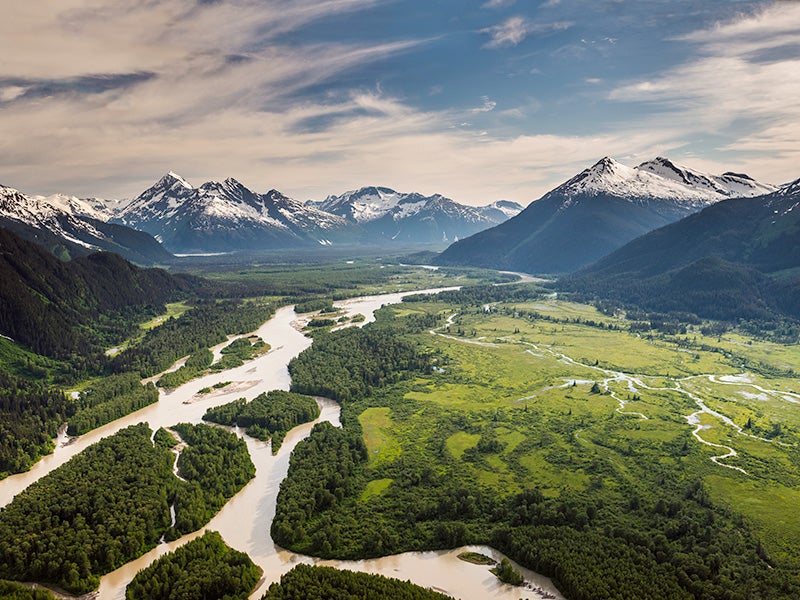Alaska Tribes facing BC mining threat ask for international hearing
SEITC briefs the Inter-American Commission for Human Rights on Canada’s violations
Contact
A group of Alaska Tribes with roots along Canada’s transboundary rivers, the Southeast Alaska Indigenous Transboundary Commission (SEITC), today submitted a brief to the Inter-American Commission for Human Rights requesting a hearing on the looming threats of several risky and under-regulated gold mines in British Columbia. SEITC argues that by approving the mines without getting the free, prior, and informed consent of the Southeast Alaskan Tribes threatened by water pollution and other adverse impacts, the governments of BC and Canada are violating their internationally recognized human rights, including to a healthy environment.
“Time is running out for our rivers, our fish, and our people,” said SEITC Vice-President Rob Sanderson, Jr. “If Canada won’t honor their obligation to give us meaningful environmental protections and secure our consents on these risky projects, then the international community must step in to protect our rights.”
The Commission accepted the Tribes’ petition to hear the case last fall, acknowledging that the rapidly expanding mining development occurring across the US-Canada border, upstream of the Taku, Stikine, and Unuk Rivers, could violate human rights. These rivers, amongst the last wild salmon spawning grounds remaining in the world, hold significant cultural importance for the Alaska Tribes.
Since SEITC first petitioned the Commission in 2020, BC has continued facilitating new mining projects and expansions, all without seeking the free, prior, and informed consent of the Tribes. Two additional mines, Eskay Creek and New Polaris, have been proposed and are in the early permitting stage. In all, Canada and BC have fully permitted three of the eight BC mines, two of which are operating, and have granted environmental authorizations to a fourth. Each of these mines cause habitat disruption in the vulnerable watershed region and will likely release toxic acid mine drainage that could cause serious and long-term population loss among salmon, a keystone species.
“The worst part is they’re facilitating these mining projects under the guise of developing critical minerals for a clean energy transition — but most of the BC mines primarily produce gold,” said Senior Attorney Ramin Pejan of Earthjustice, which represents SEITC. “It’s deceptive and misleading.”
Some data already shows excess levels of arsenic, copper, and nickel at the Alaska-BC border, with sediment concentrations of arsenic reaching ten times higher in the Unuk Watershed than the threshold effects levels. In addition to toxic acid mine drainage, Tribes worry that a catastrophic tailings-dam breach similar to the 2014 Mount Polley disaster could devastate the transboundary watersheds.
In January, SEITC sent evidence to BC regulators for their historic presence along the Unuk River, seeking deep consultation in the environmental assessment process for the Eskay Creek Project. If successful, it would be the first time in history that a U.S.-based Tribe is granted Participating Indigenous Nation status in Canada.

Additional Resources
About Earthjustice
Earthjustice is the premier nonprofit environmental law organization. We wield the power of law and the strength of partnership to protect people's health, to preserve magnificent places and wildlife, to advance clean energy, and to combat climate change. We are here because the earth needs a good lawyer.